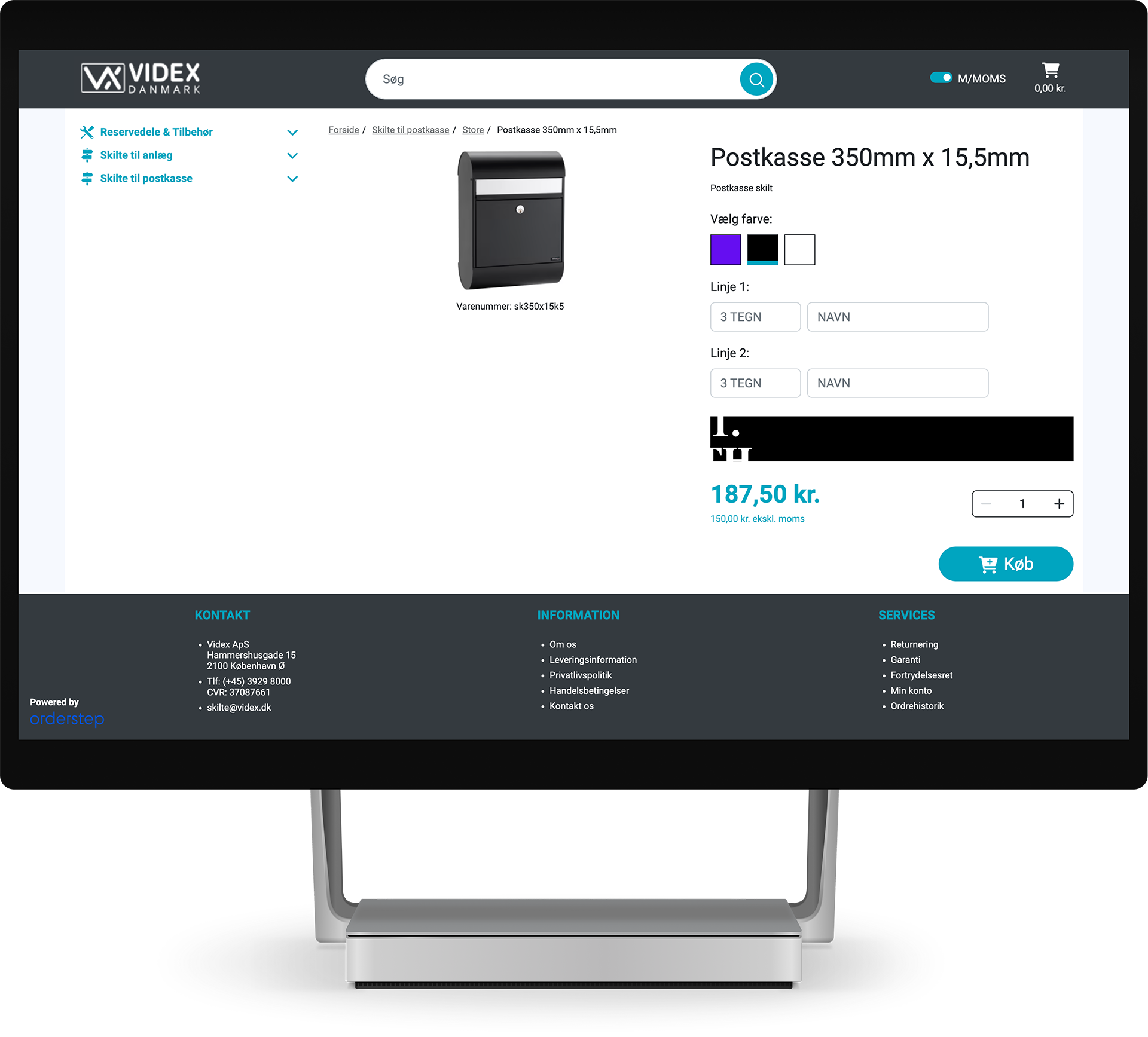AI is a new genie in today’s digital world. More and more industries are embracing it — and e-commerce is no exception. It is a breakthrough technology that revolutionizes the way businesses operate, moving them forward.
Yet, every medal has its reverse. AI conjures up 2 conflicting visions: will it provide tremendous opportunities for businesses, or will this reliance on technology lead us to a dystopian future?
In this blog, we will discuss the significance of AI for e-commerce, the competitive advantage it brings for both businesses and consumers, as well the challenges of implementing AI.
9 ways AI is transforming e-commerce
AI makes our lives easier in tons of ways. It can supercharge your e-commerce business, giving your customers rich experiences and boosting your sales. Here’s how:
Improved customer experience
AI enhances online shopping by analyzing customer data to offer personalized experiences, providing real-time insights and tailored product recommendations.
Unlike traditional retail, AI-driven platforms utilize browsing and purchase history to accurately predict preferences and guide customers through their journey, ultimately increasing satisfaction and conversion rates. It’s like having a digital shopping assistant who totally gets your vibe!
Revolutionized product visuals
Many e-commerce platforms are adding visual search to draw in more customers. With this, shoppers can search online using images instead of text or keywords.
Sometimes, customers are disappointed when the product doesn’t meet their expectations. To fix this, sellers can use AI to show items in a more realistic way. This means using high-quality images, zoomed-in views, and interactive features for a smoother shopping experience.

Sales forecasting
Using past data, seasonal patterns, and market trends, AI provides better sales predictions. AI-driven forecasting tools employ machine learning to assess demographics and external factors, such as weather.
This helps businesses achieve better cash flow and faster sales cycles, thereby cutting expenses and enhancing logistics and pricing.
Enhanced inventory management
AI helps businesses predict future demand for smarter inventory management through predictive analytics. It looks at past sales data to anticipate trends and ensure the right inventory levels.
With real-time sensor data, businesses can keep track of product sales, optimizing inventory for both physical stores and online platforms. AI-driven insights analyze customer data, helping businesses make informed decisions and improve efficiency.
Dynamic pricing
With AI-driven dynamic pricing, businesses can fine-tune prices and offerings based on how customers are behaving in real-time, global supply and demand shifts, and what competitors are up to.
For instance, if a competitor’s stock is running low, businesses get notifications and can adjust prices accordingly. This allows them to find the best times to offer discounts and figure out the smallest discount needed for sales to be successful.
Marketing personalization
AI-fueled marketing personalization tailors campaigns and promotions to individual customer preferences, boosting ROI. Marketers leverage AI for report generation and campaign optimization.
With AI’s ability to provide accurate product recommendations and advertisements, customers enjoy a personalized shopping experience based on their browsing history. By analyzing viewed content, AI predicts and suggests relevant products, making marketing feel less intrusive and more integrated into the customer’s online journey.
Automated customer service
Chatbots and virtual assistants offer 24/7 customer support, enhancing service quality and response times. They act as representatives for e-commerce businesses. These bots discern customer intent and efficiently handle routine tasks, allowing live agents to focus on more difficult issues.
Continuously evolving with ML and natural language processing, chatbots learn from past interactions, improving their ability to understand customer needs and provide better assistance.
Efficient supply chain
AI plays a vital role in optimizing supply chains, simplifying processes by forecasting disruptions and automating routine tasks. For instance, it can recommend the best delivery routes and identify potential issues early on.
By leveraging AI, e-commerce businesses can reduce costs associated with excess inventory or expedited shipping. This is particularly crucial for startups, where resources are scarce, and maintaining efficiency is paramount.
Fraud prevention
AI-powered fraud detection systems can swiftly pinpoint and prevent fraudulent transactions. By analyzing data and monitoring transactions in real-time, AI can detect anomalies like high-value transfers or multiple transactions from unfamiliar locations.
What’s impressive is that AI models uncover hidden patterns, catching fraudulent activity that might go unnoticed by humans. They provide a comprehensive view to flag suspicious behavior and help thwart new threats, safeguarding customer data and ensuring website security.
AI implementation hurdles in e-commerce
Integrating AI poses specific challenges for brands, as it’s not a one-size-fits-all solution and requires careful consideration and implementation.
High initial costs
Deploying AI technology often demands a hefty upfront investment in hardware, software, and integration services. It’s no secret that getting AI up and running can be expensive, involving costs for infrastructure, skilled personnel, and ongoing maintenance.
Keep in mind that the more extensive the AI project, the more time it typically takes.
Data privacy concerns
Utilizing customer data for AI applications requires strict compliance with data protection regulations. Widely adopted AI algorithms for personalized suggestions and predictions heavily rely on data, which obviously brings up privacy concerns.
AI can also make companies vulnerable to data leaks and breaches, putting their intellectual property at risk. To uphold privacy standards, team up with businesses and tools that are open about how they operate and follow all the rules.
Technical expertise requirement
AI demands experts who can manage every aspect, from setting up and running AI systems to fine-tuning them for peak performance. It’s not just a matter of hiring a lone genius either. AI projects need a full team – data scientists, engineers, analysts – working seamlessly together.
But here’s the catch: finding skilled individuals is tough and comes with a high cost. Retailers embarking on AI projects should be ready to dive deep into the talent search.
Data quality and accessibility
E-commerce companies struggle with data silos, scattered across systems and departments, hindering data access and analysis. Inconsistent formats and quality add hurdles, as diverse data structures complicate integration.
This lack of integration limits comprehensive business insights and hampers AI-enabled analytics effectiveness. High-quality, structured datasets are essential for AI to work, demanding time, expertise, and effort for preparation.
Customer acceptance
Customers might feel unsure or wary about engaging with AI-powered systems rather than human personnel. Not everyone welcomes the idea, with some being skeptical or not too keen on constant robot interactions.
Introducing AI in e-commerce can spark customer concerns about data privacy, security, and the ethical usage of AI.
Return on investment uncertainty
It could be a while before retailers start seeing the benefits of investing in AI tech. AI solutions don’t always guarantee a positive return on investment (ROI).
Figuring out the ROI of AI implementations can be tough. It might take some time before you see actual results, and some AI projects might not live up to expectations. But then again, some AI solutions kick off strong, and those who get in early never regret it.
Regulatory compliance
Keeping up with the changing rules on AI and staying compliant can be a real challenge for retailers. Businesses have to deal with a constantly changing set of rules about data privacy, how AI is used, and more.
But by sticking to responsible practices, strict data rules, and staying updated on the latest developments, AI can really change the game for e-commerce in the long run.
Examples of AI in e-commerce
Now, let’s take a closer look at how e-commerce giants such as Amazon, Simons, and others are leveraging AI to gain a competitive edge and achieve success.
Predictive analytics: Simons
Simons uses predictive analytics and AI to accurately predict demand, generate shipments, allocate products, calculate replenishment, and optimize promotions. The smart technology handles thousands of promotions each year, accurately predicting boosts in sales and proactively optimizing inventory.
By analyzing buying patterns and demographics, AI ensures personalized offers resonate with the audience, guiding customers smoothly through their journey.
Supply chain optimization: Zara
Zara’s supply chain strategy ensures quick market responsiveness, with items moving from design to stores in just four weeks. This agility enables high customization and leverages economies of scale, boosting profitability.
With complete control over production and distribution, Zara reduces inventory costs, accelerates production, and offers the latest trends at competitive prices, all while adjusting to customer demand efficiently.
Inventory management: Walmart
Walmart utilizes AI-powered inventory management systems to better control stock levels, cutting down on overstock and stockouts to keep customers happy. AI-driven robots are employed to scan shelves, effortlessly creating product descriptions for the online store.
This efficient process ensures quick and accurate updates to Walmart’s online inventory. The goal of this initiative is to elevate the overall shopping experience and drive sales by offering current and comprehensive product details.
AI chatbot: Sephora
Sephora is at the forefront of using chatbots in the beauty industry, leveraging branded emojis and other tech to enhance customer experiences. These chatbots are smart learners, capable of comprehending natural language from customers, whether they mention dates, times, locations, or more. They’re boosting sales for Sephora and opening up even more opportunities for the brand.

Dynamic pricing: Amazon
Amazon constantly adjusts the prices of millions of products throughout the day to keep up with market trends and offer shoppers the best deals. Whenever competitors launch promos or discounts, Amazon promptly adjusts its prices.
However, they do so strategically, ensuring maximum profit based on sales predictions. This approach allows them to remain competitive while controlling profit margins.
Product selection: The North Face
The North Face harnesses IBM Watson’s cognitive computing to customize coat recommendations according to customers’ activities, providing tailored suggestions to ensure a perfect fit.
When customers input jacket specifics or outdoor plans, the AI delves deeper, inquiring about location, timing, and activities. Analyzing past preferences, reviews, social media, and weather forecasts, it narrows down options to 6 products that suit the shopper’s needs.

Visual search: Neiman Marcus
At Neiman Marcus, AI is in action to simplify the shopping journey for customers. With its “Snap. Find. Shop.” feature, users can snap a 3D image and instantly get product suggestions that match from their online store.
Now available across all product categories, this tool exceeds expectations, making shopping easy from anywhere, anytime. Visual search eliminates obstacles, smoothly guiding you from inspiration to satisfaction.

AI in retail vs AI in e-commerce
So, how is AI changing e-commerce? As we’ve seen, AI is making e-commerce smoother and more customer-friendly. It’s like having a genius assistant who knows exactly what customers want, keeps stores secure, and even helps businesses tackle any tricky areas.
It’s a growing field with various impacts, but with some insight, we can better grasp its potential and its pitfalls.
Wrapping up
E-commerce brands are embracing artificial intelligence to enhance analytics, create personalized experiences, and stay competitive. As AI continues to shape the e-commerce landscape, brands that don’t jump on board risk falling behind.
Technology and automation are no longer perks — they’re necessities. The future of e-commerce isn’t just digital; it’s intelligent, dynamic, and personalized. Want to incorporate AI into your business? Get in touch with our experts to explore how we can help.
Frequently asked questions
What is AI in e-commerce?
AI in e-commerce refers to the integration of AI technologies to enhance various aspects of online retail operations, including customer service, product recommendations, inventory management, and personalized marketing strategies.
What are the main benefits of using AI in e-commerce?
- Enhanced personalization
- Automated customer support
- Behavioral pattern identification for retargeting
- Streamlined sales processes
- Enabled smart search capabilities
How does AI personalize the online shopping experience?
AI can personalize the customer experience by understanding their habits and preferences. It can assist by suggesting products, anticipating needs, and offering instant support via chatbots.
Can AI-powered chatbots replace human customer service?
Generative AI, with its predictive capabilities, can enhance customer interactions and assist in triaging complex issues to human customer service reps with contextual information; but it cannot completely replace humans.
What are some potential drawbacks of using AI in e-commerce?
Over-reliance on algorithms may result in unfair outcomes, raising privacy concerns about data collection. Reduced human interaction in customer service and potential job loss due to automation are other drawbacks to consider.
How can e-commerce businesses get started with AI?
To begin their AI journey, e-commerce businesses can reach out to experts in the field for guidance and advice on implementing AI solutions tailored to their specific needs and goals.
See how we helped Orderstep
increase subscription revenue
by developing premium webshop module




